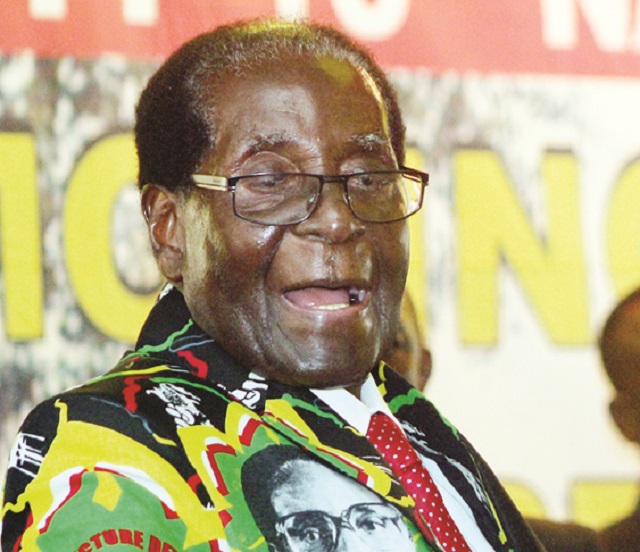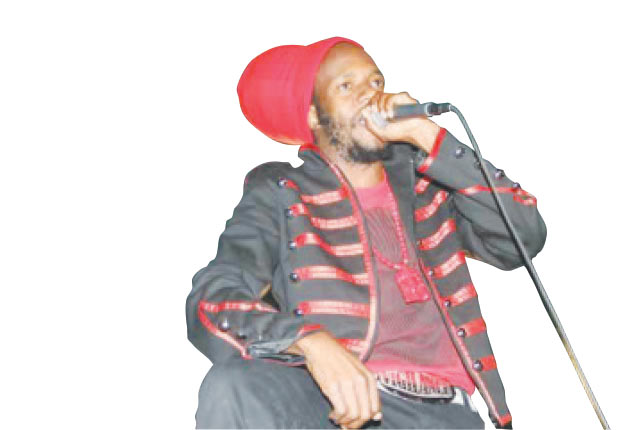EDITORIAL COMMENT: Let’s celebrate President’s birthday with pride

President Mugabe turns 93 tomorrow, another milestone for the icon who has delivered national socio-economic development and liberation in its multiple facets.
He led during the liberation struggle in the 1970s. It was a difficult struggle which needed nerves of steel and a clear focus for those leading it. Some unfortunately fell in that armed conflict, and others renounced it when it got tough. Yet the President persisted and persevered as one of the leaders of that phase of our struggle. On April 18, 1980, political liberation came.
Immediately after Independence, President Mugabe set out to improve access to education for the majority. He knew that the minds of our people needed a formal education for them to be liberated and be able to grasp issues at a superior level. To attain this, education had to be made free so that even the poorest of the poor could access it. Thanks to this policy, millions attained basic education in the 1980s while others proceeded to acquire higher and tertiary education. They got educated enough to think and act more clearly and from a Zimbabwean perspective. This was important to decolonise the mind, liberate the minds of our people. Now Zimbabwe has the highest literacy rate in Africa and our education system is respected worldwide.
Also, he has led the way in delivering the economy to the people of Zimbabwe, another very difficult phase towards the total liberation of the people and their natural resources. In this phase he didn’t have to seek guns from China, Russia and other countries in the Eastern bloc as he did in the 1970s. It was a struggle of ideas, minus guns. It started with his strong support for affirmative action in the 1990s. He personally and through the successive Governments he led, supported economic indigenisation through pressure groups such as the Indigenous Business Development Centre, Affirmative Action Group, Indigenous Business Women’s Organisation and Sangano Munhumutapa in the quest to open up economic opportunities for black people who were systematically excluded in 90 years of colonialism.
It was clear to him that on its own, political liberation is hollow if it did not come with indigenous control of the economy. As a result of that understanding, many indigenous people started making inroads into previously white-dominated sectors of the economy — banking, manufacturing, tourism and hospitality and so on. This laid a solid foundation for the likes of Roger Boka, Philip Chiyangwa, Jane Mutasa, Nigel Chanakira, Mutumwa Mawere, Nicholas Vingirayi, Shingi Mutasa, Ben Mucheche, Chemist Siziba, Strive Masiyiwa, James Makamba and others to prosper later on.
In saying this, we are not suggesting that President Mugabe and his Government materially supported all these businesspeople. Yes it was possible in some cases. However, the Government created that environment that inspired indigenous entrepreneurship, giving the people that understanding that blacks can run successful companies. That helped immensely in delivering economic liberation to the formerly oppressed masses and now Zimbabwe has one of the most indigenised economies in Africa.
It didn’t end there. In 2000, the President launched yet another phase of economic liberation with the fast-track land reform and redistribution programme. Prior to that exercise, the land was one of the most exclusive sectors of the economy. In large measure, that was a result of a clause in the Lancaster House agreement that bound the new post-independence government to pursue the willing buyer, willing seller principle in democratising ownership of agricultural land. The difficulty was that only a few whites were willing to sell their land. The few who did, demanded above market prices that the new Government could not afford, hence that principle was dropped in the national interest.
Through the 2000 approach, the President decided that we go the revolutionary way to liberate the land from settler occupation. Through the land reform and redistribution programme, as many as 11 million hectares of land has been acquired from some 4 500 whites, mainly of British stock and has been allocated to at least 380 000 blacks. That programme has gone a long way in economically liberating blacks and decongesting rural areas.
Through his able leadership, the President made sure that the economic liberation agenda was underpinned by the law. To this end the Government came up with the Indigenisation and Economic Empowerment Act in 2008. The law stipulates that any resource-based businesses must be majority owned by locals at 51 percent with foreigners owning 49 percent. In addition to that, economic indigenisation is enshrined in the Constitution of Zimbabwe promulgated in 2013. This will go a long way in establishing a constitutional framework for blacks to be economically liberated.
The man who made this, and more, possible is President Mugabe, a liberator par excellence, whose 93rd birthday we mark tomorrow. He is an accomplished leader with the courage to take on the strength of the West. Indeed his birthday is a momentous occasion which gives us all an opportunity to celebrate the sterling work he has done for his country and the work he will do for his country well into the future.








Comments